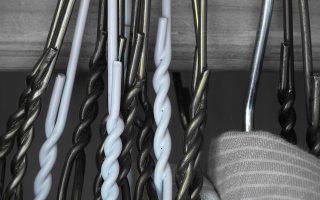Photo by Towfiqu Barbhuiya on Unsplash
If you’re saving money, you’re doing something positive. Saving any amount of money can be helpful when working toward a specific goal. While there is no ‘right’ or ‘wrong’ way to save, some actions during the savings process can mean you don’t save as much as you could or intended. If you’re putting aside funds for retirement, education, a rainy day, or something else, you could be making these mistakes:
Keeping Savings in the Wrong Place
Ask a financial expert like Strategic Financial Solutions, and they will tell you that a money box under the bed isn’t the best place for your savings when you want to maximize its value. Neither is a checking account that’s all too easy to access. If you want to make your money work for you, talk to experts offering wealth creation services. They can provide advice on how to invest your money and watch it grow.
Saving Without a Purpose
While there’s nothing wrong with saving money just because, you may find that you’re a more proactive saver if you have a reason to save. You may even be less likely to dip into your savings account if you know it will put you further away from reaching your savings goal.
Open a savings account with a motivation in mind, like saving for a house down payment, education, your retirement, or starting an emergency fund. You may then find it easier to keep on track.
Not Having an Emergency Fund
As you save for other important things like education and retirement, you should also have a separate savings account for emergencies. Otherwise, unexpected expenses can threaten to wipe out your hard-earned savings for other important things.
Ideally, your emergency fund should have enough money to cover 3-6 months of expenses. At a minimum, it should have enough to cover something unexpected that has the potential to impact daily life, like a car repair or a new appliance.
Waiting Until the End of a Pay Cycle to Save
Many people contribute to their savings account by putting any remaining funds they have left over at the end of their pay cycle into it. However, we tend to inflate our expenditure when we see we have plenty of money to spare.
Don’t fall into this trap. Instead, set up an automatic payment so money will automatically go into a savings account or plan each time you receive income. You can then spend or save any remaining amount.
Carrying High-Interest Debt
It’s important to save even when you have debt. For example, a savings account and a mortgage can co-exist. However, if you have high-interest debt like credit cards, there can be value in paying this off before you put all your effort into saving. Otherwise, you’re giving credit card companies more of your hard-earned money than you need to.
While any form of savings can be helpful, some methods can prove more beneficial than others. Align yourself with financial experts, create an emergency fund, and eliminate debt. These actions may maximize your savings and help you achieve your financial goals.







Comments